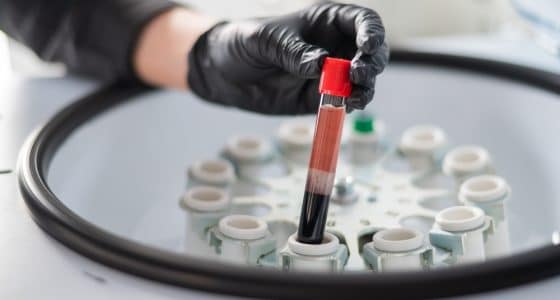A study published in Scientific Reports highlights an important new finding regarding mesothelioma: it is possible to test blood to gauge the extent to which an individual has been exposed to asbestos, and to use that information to identify at high risk for asbestos-related diseases.

Blood Serum Test Can Reveal Asbestos Exposure and Risk for Mesothelioma
The research behind the mesothelioma study was conducted by scientists from Italy’s University of Ferrara. The group determined that a microRNA in blood serum is an accurate indicator of asbestos exposure. This discovery could counter many of the difficulties that clinicians have in diagnosing asbestos-related diseases.
One of the biggest challenges in taking quick action against mesothelioma is that it’s very difficult to diagnose. Many patients think their symptoms are the flu or a virus, and wait for weeks or even months before seeking treatment. Most physicians are unlikely to suspect mesothelioma over more common and benign diseases, and this becomes more likely if they are unaware that the patient has a history of asbestos exposure.
MicroRNA Test Detects Asbestos in Blood Serum
MicroRNAs are present in blood, and they are integral to how genes impact much of what happens within the body. The researchers found that microRNA-197-3P levels in those who have been exposed to asbestos are far different between those who haven’t been, and that variable can be used to identify those who are at risk for mesothelioma and other asbestos-related diseases.
According to the study, microRNA-197-3p is much higher in healthy subjects than it is in those who have a history of asbestos exposure. This means that physicians could test for levels of this specific microRNA and identify those in their practice who are most at risk, or to test those manifesting symptoms of the deadly form of cancer.
If you or someone you love is at risk for an asbestos-related disease, you need immediate and comprehensive support. Contact the Patient Advocates at Mesothelioma.net today at 1-800-692-8608 to learn how we can help.
